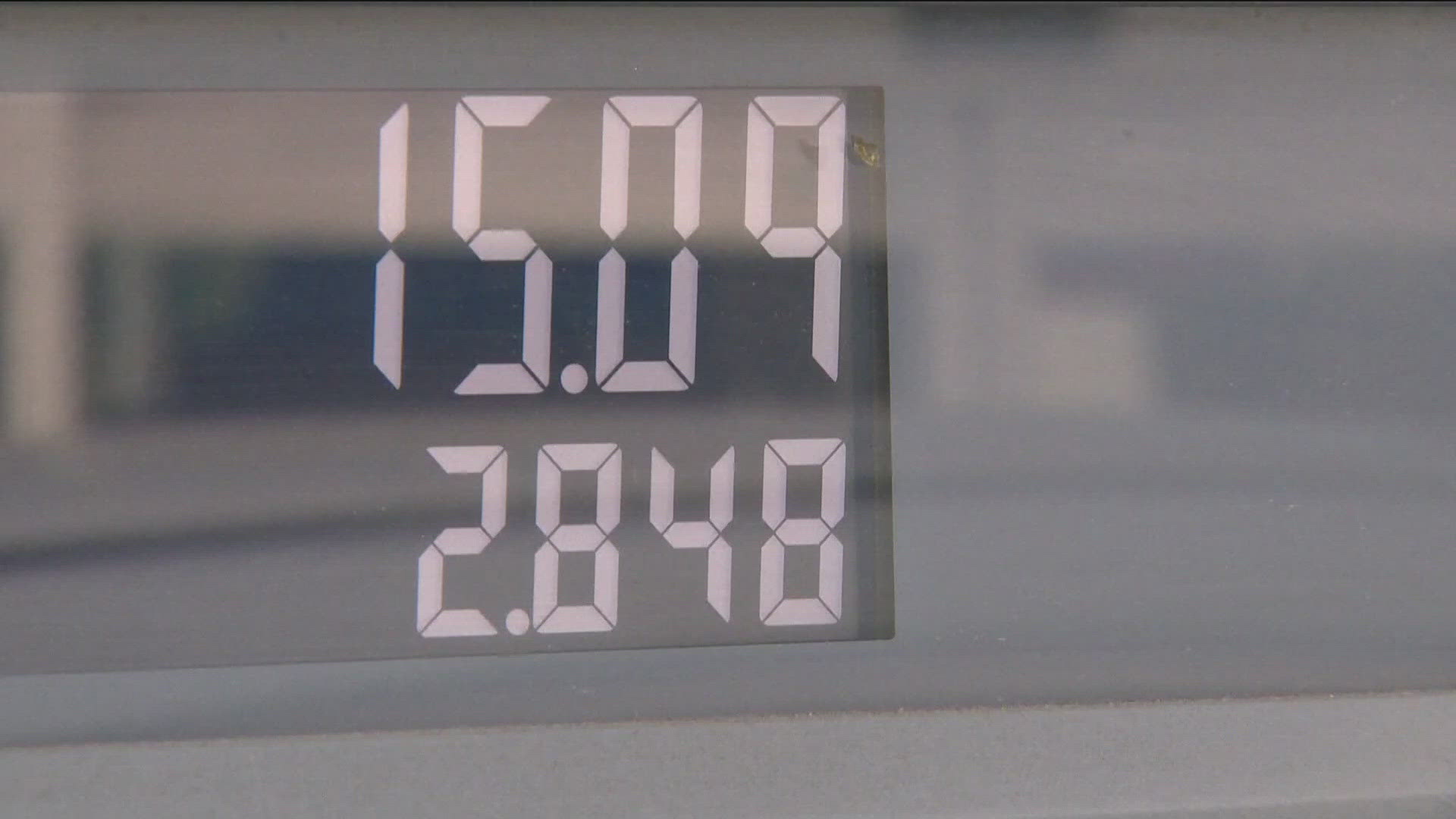SAN DIEGO — State regulators are considering rules that could cause gas prices to jump in California.
If these new regulations pass, fuel prices could jump by 47 cents to 65 cents a gallon, according to some analysts. It's a prospect that has some drivers pumping the brakes.
"We would contract.... we'd have to," said San Diegan couple Lin and Cali, adding that the cost of fuel already takes up a big chunk of their budget.
"It's probably a good ten percent," said Lin.
That personal percentage could rise, even if the state takes no action.
"We have three cars in the household, and a teenager who's about to drive, so that'll be four," said Cali.
But if the California Air Resources Board does green light this proposal, limiting the amount of carbon in fuel by increasing penalties for refineries that produce high-carbon diesel and gasoline, that extra cost would be passed down to consumers like Lin and Cali.
"I'll definitely conserve, but not as much as she will," Cali laughed.
"I conserve, and then she'll have more!" Lin agreed.
How to save on fuel seems to be passed down from generation to generation.
"My parents were Depression kids, and World War II kids," Lin said.
They were parents who taught their kids how to live below their means.
"Use it up, wear it out, make it do or do without," Lin said.
This potential price increase when filling up comes at the same time that Governor Newsom is calling for legislation just passed by the State Senate. It would require refineries to have an adequate back-up supply of fuel, a minimum 15-day supply, to prevent erratic price spikes.
It's a plan getting pushback from Republicans.
"Instead of focusing on the solutions that will drive prices down, we've seen policies that risk pushing them even higher," said Republican Assembly Member Joe Patterson.
Dollars aside, some say changing the carbon intensity regulations makes more sense, especially when it comes to confronting climate change.
It is a major priority for the younger generations.
"Our son is 17 and the climate is one of his number one concerns," Cali said. "And so what are we leaving them? Then we have this need to greatly reduce the carbon footprint, and they are really aware of that as Gen Z's."
It is a legacy that makes these parents question what the future could hold.
"I don't know," said Lin. "Maybe by then they'll have everybody moved into the cities, living in buildings without cars."

